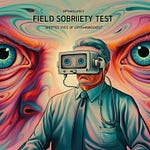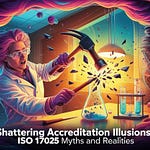I had the opportunity to interview Ted Vosk with cohost Charles Ramsay.
Ted Vosk is an award-winning attorney and forensic consultant with degrees in physics, mathematics, and law. He is the author of the first textbook on forensic metrology and has published an important paper on the measurand problem in breath alcohol testing.
Ted is passionate about accurate measurements and uncertainty analysis in forensic science. We discuss the concept of forensic metrology, the difference between frequentist and Bayesian statistics, and the challenges of applying science in the courtroom.
Ted emphasized the need for accurate measurements and uncertainty analysis in forensic science to ensure fair justice. He also highlights how states define breath alcohol concentration and the implications for fairness in the legal system.
Key Takeaways:
Forensic metrology is the science of measurement applied forensic science.
Frequentist statistics focus on measuring populations, while Bayesian statistics combine frequentist information with other sources of information.
Uncertainty analysis is crucial in forensic science to determine the confidence and reliability of measurements.
Different states have different definitions of breath alcohol concentration, which can lead to unfair treatment of individuals with the same breath test results.
It is important to educate judges and juries about the limitations and uncertainties of forensic measurements.
Quotes:
"Without accurate measurements and uncertainty analysis, forensic evidence lacks scientific support." - Ted Vosk
"Uncertainty is a necessary element of valid science and should be reported in forensic measurements." - Ted Vosk
"It's fundamentally unfair to ignore the possibility that the result has been increased by 0.01 due to an interfering substance." - Ted Vosk
Chapters:
00:00 Introduction
03:29 Discussion on Forensic Metrology
05:14 The Importance of Accurate Measurements in Forensic Science
05:46 Challenges in the Application of Science in Courtrooms
07:43 The Role of Uncertainty in Scientific Evidence
20:21 The Difference Between Frequentist and Bayesian Statistics
33:42 The Impact of Uncertainty on Legal Cases
55:30 The Importance of National and International Standards
01:22:14 The Role of Interfering Substances in Breath Alcohol Testing
















